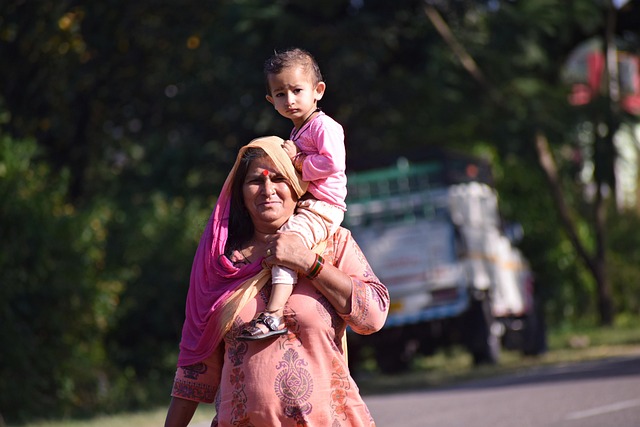In Indiana, grandparent visitation rights are governed by state law, with Marion County advocates focusing on ensuring these rights through understanding local legal provisions. Courts consider parental agreement, grandchild well-being, and the grandparent-child relationship to interpret these laws. Marion County recognizes the vital role of grandparent-child bonds in a child's emotional support, wisdom, and sense of continuity. Effective advocacy requires knowledge of Ind. Code § 31-17-5-1 criteria, clear communication, meticulous record-keeping, and understanding local case precedents. Supporting organizations and community groups offer legal aid, emotional support, and awareness campaigns to strengthen Marion County's grandparent visitation advocacy.
In Marion County, advocating for grandparent visitation rights is crucial to preserving cherished intergenerational bonds. This article delves into the complexities of Indiana’s legal framework governing these visits, highlighting the significance of such connections for both grandparents and grandchildren. We explore the legal process, from navigating court systems to presenting compelling evidence and arguments. Additionally, we provide resources and community support mechanisms vital for successful advocacy in Marion County.
- Understanding Grandparent Visitation Rights in Indiana Law
- The Importance of Advocacy for Grandparent-Child Bonds
- Navigating the Legal Process in Marion County Courts
- Building a Strong Case: Evidence and Legal Arguments
- Supporting Resources and Community Involvement in Marion County
Understanding Grandparent Visitation Rights in Indiana Law

In Indiana, grandparent visitation rights are governed by state law, offering a framework for maintaining family connections. According to Indiana Statute 31-17-5-1, non-parental grandparents have the right to visit their grandchildren if it serves the child’s best interests and one or both parents consent or a court orders it. This legislation recognizes the importance of extended family relationships and aims to balance the rights of parents with those of grandparents.
For Marion County advocates, understanding these legal provisions is crucial when fighting for grandparent visitation. Local courts interpret these laws based on specific circumstances, considering factors like parental agreement, grandchild’s well-being, and the relationship between grandparent and grandchild. By knowing their rights and presenting compelling cases, advocates can ensure that grandparents in Marion County have opportunities to nurture meaningful relationships with their grandchildren.
The Importance of Advocacy for Grandparent-Child Bonds

Grandparent-child relationships are invaluable, offering unique emotional support, wisdom, and a sense of continuity for children. In Marion County, advocating for grandparent visitation rights ensures that these powerful bonds can flourish. Without formal advocacy, grandparents may face barriers to spending quality time with their grandchildren, potentially leading to a loss of connection and the positive impacts associated with intergenerational relationships.
Marion County advocacy plays a crucial role in recognizing the significance of these family ties. By championing grandparent visitation rights, communities foster environments where children benefit from the love, care, and guidance offered by their grandparents, contributing to their overall well-being and development.
Navigating the Legal Process in Marion County Courts

Navigating the legal process in Marion County courts for grandparent visitation rights can be complex and emotionally charged. Parents, grandparents, and advocates must understand the specific laws and regulations governing these matters. In Indiana, grandparent visitation is governed by Ind. Code § 31-17-5-1, which outlines the criteria for granting visitation rights to non-parents, including grandparents. The court considers factors such as the child’s relationship with the grandparent, the parent’s willingness to allow visitation, and the best interests of the child.
In Marion County, parents have the right to present evidence and argue their case before a judge. Grandparents or advocates should be prepared with documentation supporting their request, such as letters from the grandparents describing their relationship with the child, photographs, and any relevant medical or educational records. The court may also order a home study or other assessments to gauge the suitability of grandparent visitation. Effective advocacy involves clear communication, meticulous record-keeping, and a thorough understanding of the legal standards applied in Marion County courts.
Building a Strong Case: Evidence and Legal Arguments

In building a strong case for grandparent visitation rights in Marion County, it’s crucial to gather compelling evidence and craft solid legal arguments. This includes presenting documents such as court records detailing previous relationships between grandparents and grandchildren, affidavits from family members or friends attesting to the positive impact of grandparental involvement, and any relevant medical or psychological reports highlighting the benefits of visitation for the child’s well-being.
Legal arguments should be based on both state laws governing visitation rights and case precedents within Marion County. Understanding the specific laws and previous rulings can provide a strong foundation for your advocacy. It’s essential to highlight how the denial of visitation rights impacts not only the grandparent-grandchild relationship but also the child’s emotional and psychological development, drawing from research or expert opinions that support these claims. This comprehensive approach ensures a robust case that respects both the rights of grandparents and the best interests of the child.
Supporting Resources and Community Involvement in Marion County

In Marion County, several organizations and community groups actively support grandparent visitation rights advocacy. These resources provide legal aid, emotional support, and guidance to grandparents facing challenges in maintaining connections with their grandchildren. Local non-profits and legal clinics offer pro bono services, ensuring that financial constraints do not deter grandparents from pursuing their rights. Community involvement is pivotal; residents organize awareness campaigns, workshops, and support groups to educate the public about the importance of grandparent-grandchild relationships and the potential impacts of limited visitation.
Marion County’s advocacy landscape thrives on collaborative efforts. These initiatives involve local authorities, schools, and community leaders working together to ensure that grandparent visitation is recognized as a vital aspect of family well-being. By fostering an environment where support is readily available, Marion County strengthens its community bonds and contributes to happier, healthier families.






